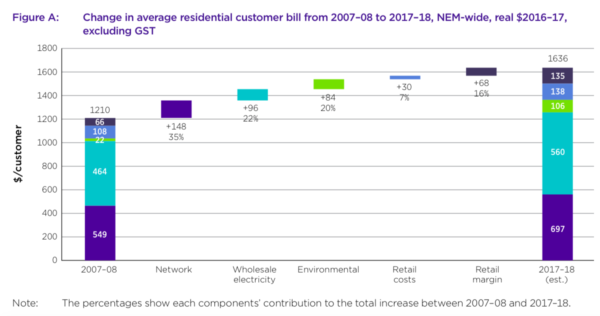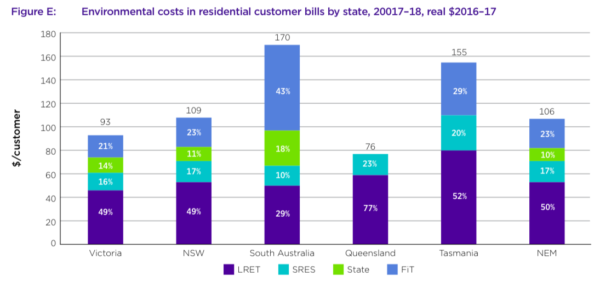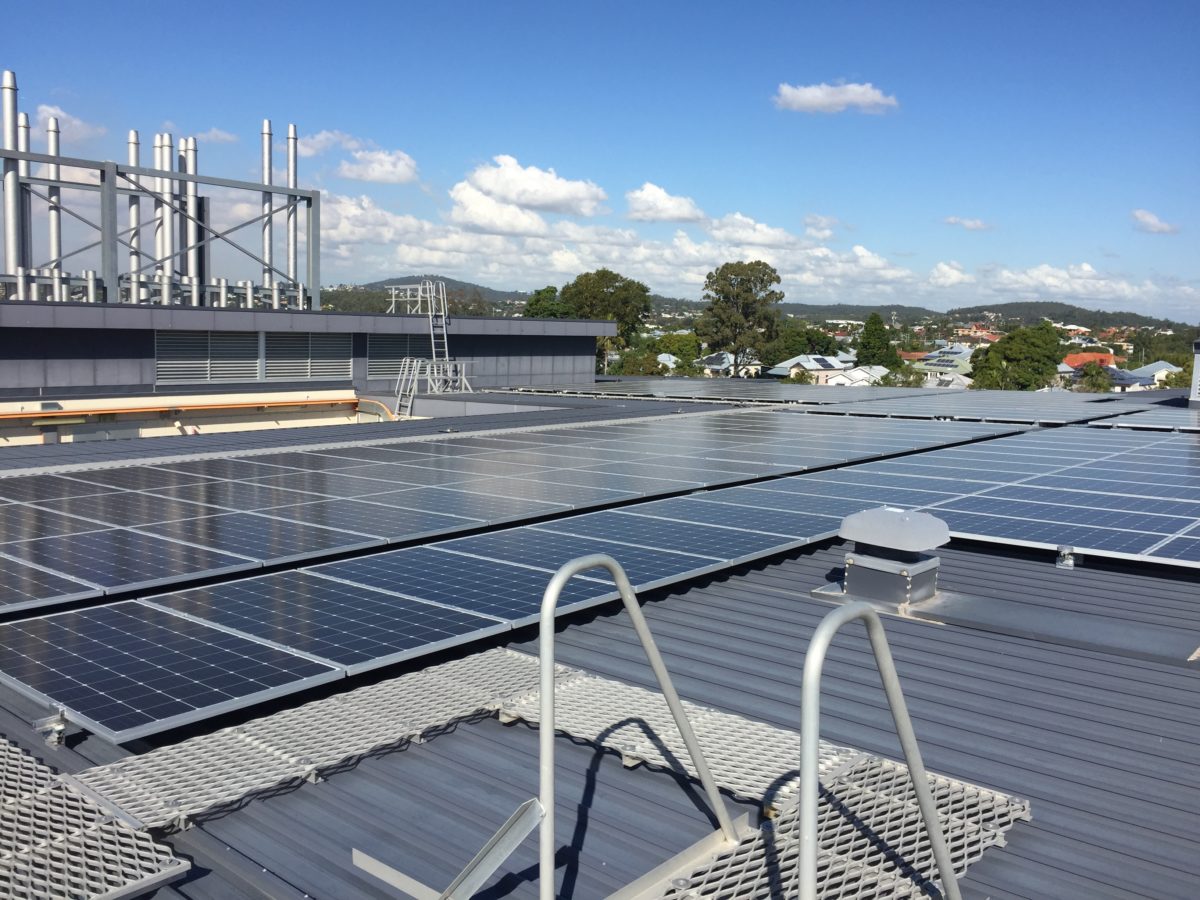Describing Australia’s current electricity market conditions as “unacceptable and unsustainable” the ACCC has made a laundry list of recommendations to government aimed at reducing household and business electricity bills. The findings are a result of the ACCC’s inquiry into retail electricity pricing and were published in its Restoring electricity affordability and Australia’s competitive advantage report.
The report finds that residential electricity consumers have faced a 35% ‘real’ increase in electricity bills over the past decade, and a price increase of 56%. The differential between the two figures refers to the decreased energy consumption of homes in that period.

The reverse this trend, the ACCC makes 56 recommendations, aimed at tackling the drivers of the electricity cost increases.
The ACCC recommendations are based around four areas: boosting generation and retail competition; lowering network and environmental scheme costs; enhancing consumer experiences and outcomes; and improving business outcomes.
The second area of recommendation is the one of concern to the rooftop PV sector.

The ACCC’s recommendation #24 calls for the SRES to be “wound down and abolished by 2021”. Its recommendation #25 says that state governments should carry the cost of premium solar FIT programs, all since closed to new entrants, rather than passing on the additional cost to consumers.
To prematurely wind up the SRES would undoubtedly impact the sub 100kW rooftop solar market right around Australia. The subsidy, monetized through the generation of Small-scale Technology Certificates (STC) is a sizeable one, worth over one-third and even approaching half of the cost of standard 5kWp rooftop system.
The Smart Energy Council notes in a statement: “The SRES will be phased out by 2030, with the amount deemed reduced every year from now until 2030.” It adds that $40 is paid for every carbon ton avoided under the program. It has noted in the past that SRES accreditation of rooftop components also plays a key quality control role.
The SRES is wildly popular with Australian households, and voters – as has been evidenced by the backlash in the face of previous attempts to bring it to a close. Support for renewable energy in community remains high, and adding a rooftop solar system both empowers consumers, but allows for individuals to take action of climate change – in the face of dithering from governments.
Green Energy Markets Tristan Edis noted an additional benefit of rooftop PV enabled through the SRES, in a sizeable Twitter response addressing many aspects of the ACCC report and recommendations: That the SRES introduces new competition to the energy generation market. And at current rates, more than 700 MW in the first six months of 2018, rooftop PV is quickly becoming a major power generation in Australia’s suburbs, cities and regional communities.
This content is protected by copyright and may not be reused. If you want to cooperate with us and would like to reuse some of our content, please contact: editors@pv-magazine.com.









2 comments
By submitting this form you agree to pv magazine using your data for the purposes of publishing your comment.
Your personal data will only be disclosed or otherwise transmitted to third parties for the purposes of spam filtering or if this is necessary for technical maintenance of the website. Any other transfer to third parties will not take place unless this is justified on the basis of applicable data protection regulations or if pv magazine is legally obliged to do so.
You may revoke this consent at any time with effect for the future, in which case your personal data will be deleted immediately. Otherwise, your data will be deleted if pv magazine has processed your request or the purpose of data storage is fulfilled.
Further information on data privacy can be found in our Data Protection Policy.